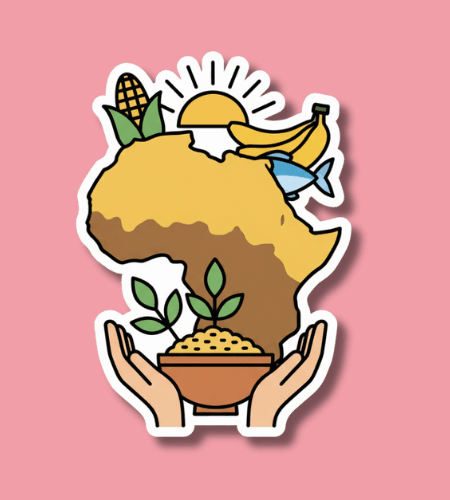The Africa Day for Food and Nutrition Security (sometimes abbreviated ADFNS) is observed annually on October 30 to spotlight the urgent need for improved food security and nutrition across the African continent. 1
This day marks a collective commitment by the African Union (AU) and its member states to tackle hunger, malnutrition and build resilient, nutrition‑sensitive food systems.
Table of Contents
History of Africa Day for Food and Nutrition Security
The Africa Day for Food and Nutrition Security was formally launched in 2010 in Lilongwe, Malawi, following a decision made by the AU Assembly held in Kampala, Uganda. The AU Summit designated 30 October as the day each year to focus on food and nutrition issues.
Since then, the day has been commemorated each year—for example, the 11th ADFNS in 2020 took place on 29‑30 October under the theme “Resilient Food Systems toward Healthy Diets for the Vulnerable during Emergencies: Lessons from the Covid‑19 Pandemic.” The event has grown into a platform for high‑level dialogue, technical discussions, policy monitoring, and stakeholder engagement across Africa. NEPAD+1
Why is Africa Day for Food and Nutrition Security important?
What I find especially compelling about this observance is the way it connects the basic human need for food and nutrition with the broader systems and structures of agriculture, policy, governance, and economy. On a continent where food security is challenged by climate change, conflict, infrastructure gaps, and demographic growth, the day reminds us that ensuring adequate nutritious food isn’t simply a matter of charity—it’s a matter of rights, resilience, and national development.
It also turns our attention to how interconnected food systems are: from the farmland to the table, from what children eat to how adults work, from the soil quality to the nutrition outcomes. Recognizing that sound nutrition drives not just health but also economic productivity, social stability, and human potential, this day becomes a moment to reflect on the whole chain of food production, distribution, and consumption.
Here are some reflections on why this day matters:
- It underscores that hunger and malnutrition persist despite Africa’s agricultural potential.
- It draws attention to the need for nutrition‑sensitive agriculture and food systems, not just food availability.
- It emphasizes that children and vulnerable groups must be central in the agenda for food and nutrition security.
- It signals that policy and institutional action – at governmental and community levels—are crucial to unlocking lasting change.
- It reminds societies that sustainable local food systems and African foods/traditional diets have major roles to play in nutrition and food security.
How to Observe Africa Day for Food and Nutrition Security
You don’t need to live in Africa to observe this day meaningfully—anyone can join in the conversation, support the ideas, learn, and act. One way is to use October 30 as a moment to educate yourself and others about the realities of food and nutrition security in Africa: look up statistics, follow an African food systems initiative, or share a story of change.
Another way is to engage in actionable steps: if you are involved in food, nutrition, or community work (wherever you are), you might host a small event (in person or online) that draws attention to food systems, traditional African foods, or the link between nutrition and agriculture. If you’re a student or educator, you might incorporate the theme into a lesson or project. If you’re a consumer or professional, you might choose to highlight African‑grown produce or support an initiative working toward nutrition in Africa.
Here are some straightforward ideas:
- Share an article or infographic on October 30 about food security in Africa, with friends or social‑media.
- Organize or attend a webinar or local talk on the theme of African food systems, nutrition, and local foods.
- Choose to learn about and try an African staple or traditional food (legumes, grains, indigenous crops) and reflect on its role in nutrition.
- Support or donate to an African‑based organization working in food security or nutrition (or amplify their work).
- If you’re in the agriculture or food business, consider how your work connects to resilient food systems—think about sourcing, processing, distribution, nutrition value, and local community impact.
Africa Day for Food and Nutrition Security Dates Table
| Year | Date | Day |
|---|---|---|
| 2026 | October 30 | Friday |
| 2027 | October 30 | Saturday |
| 2028 | October 30 | Monday |
| 2029 | October 30 | Tuesday |
| 2030 | October 30 | Wednesday |
- https://www.acerwc.africa/en/article/activity/statement-acerwc-working-group-climate-change-and-childrens-rights-africa-day-food[↩]
Subscribe to our newsletter and never miss a holiday again!

